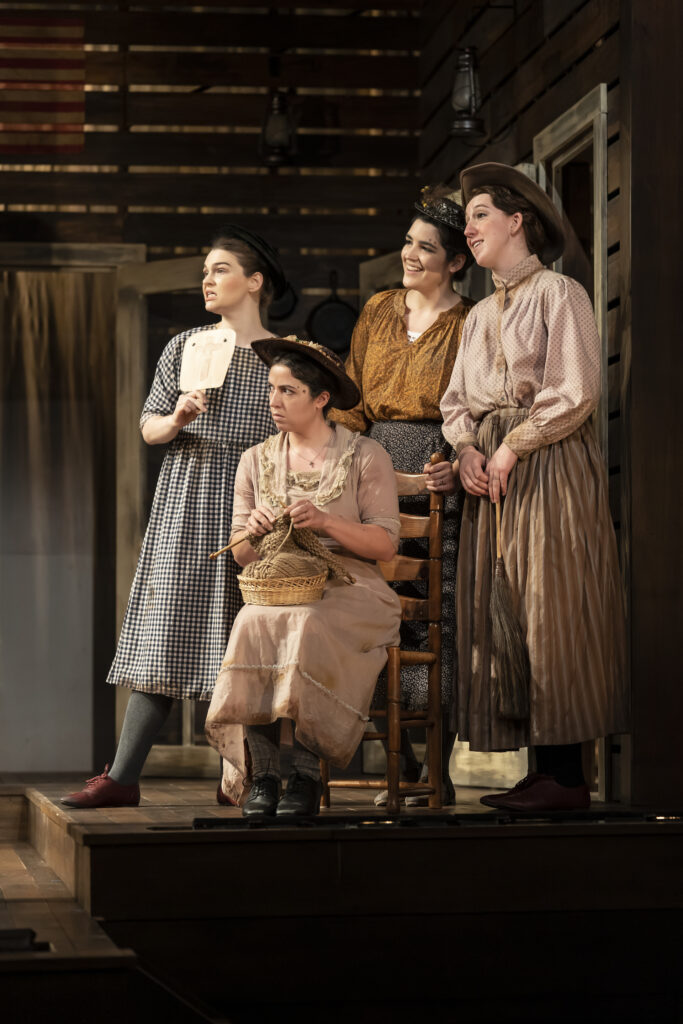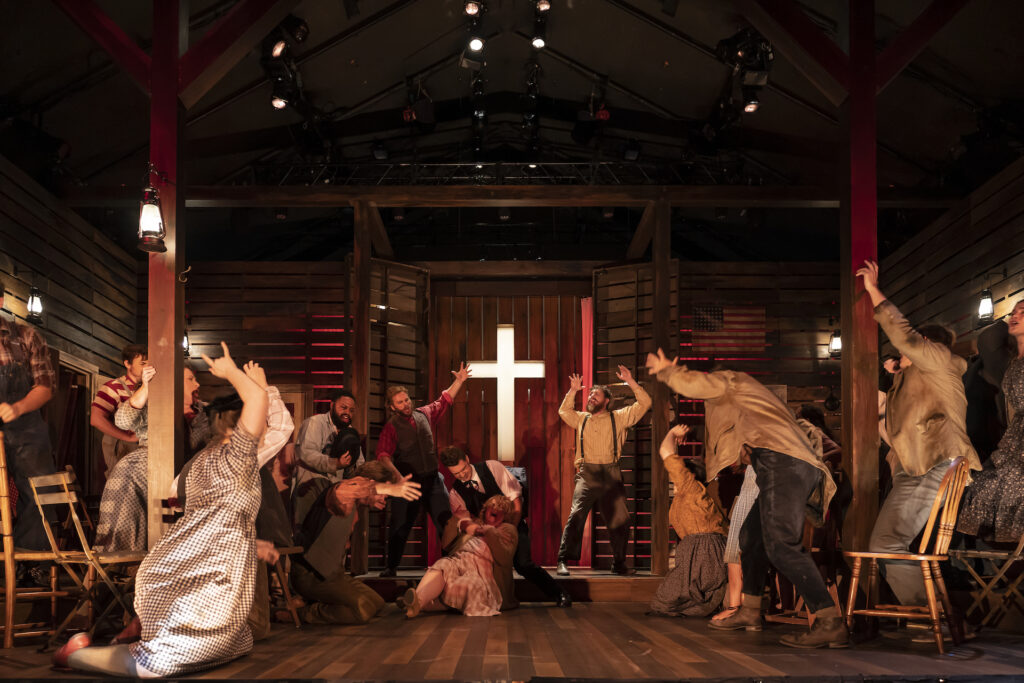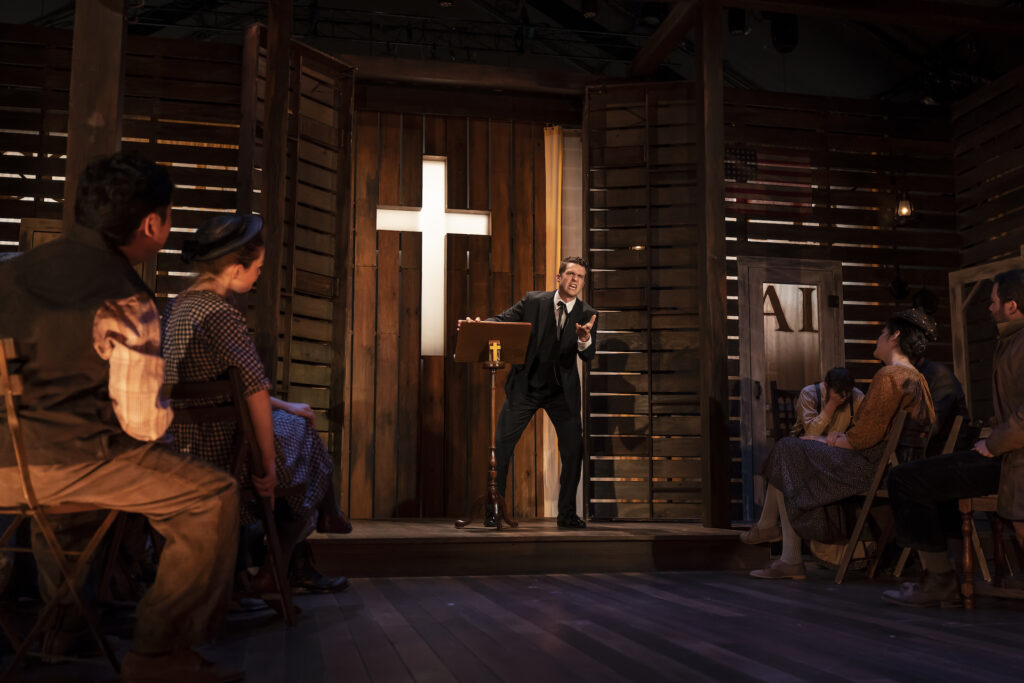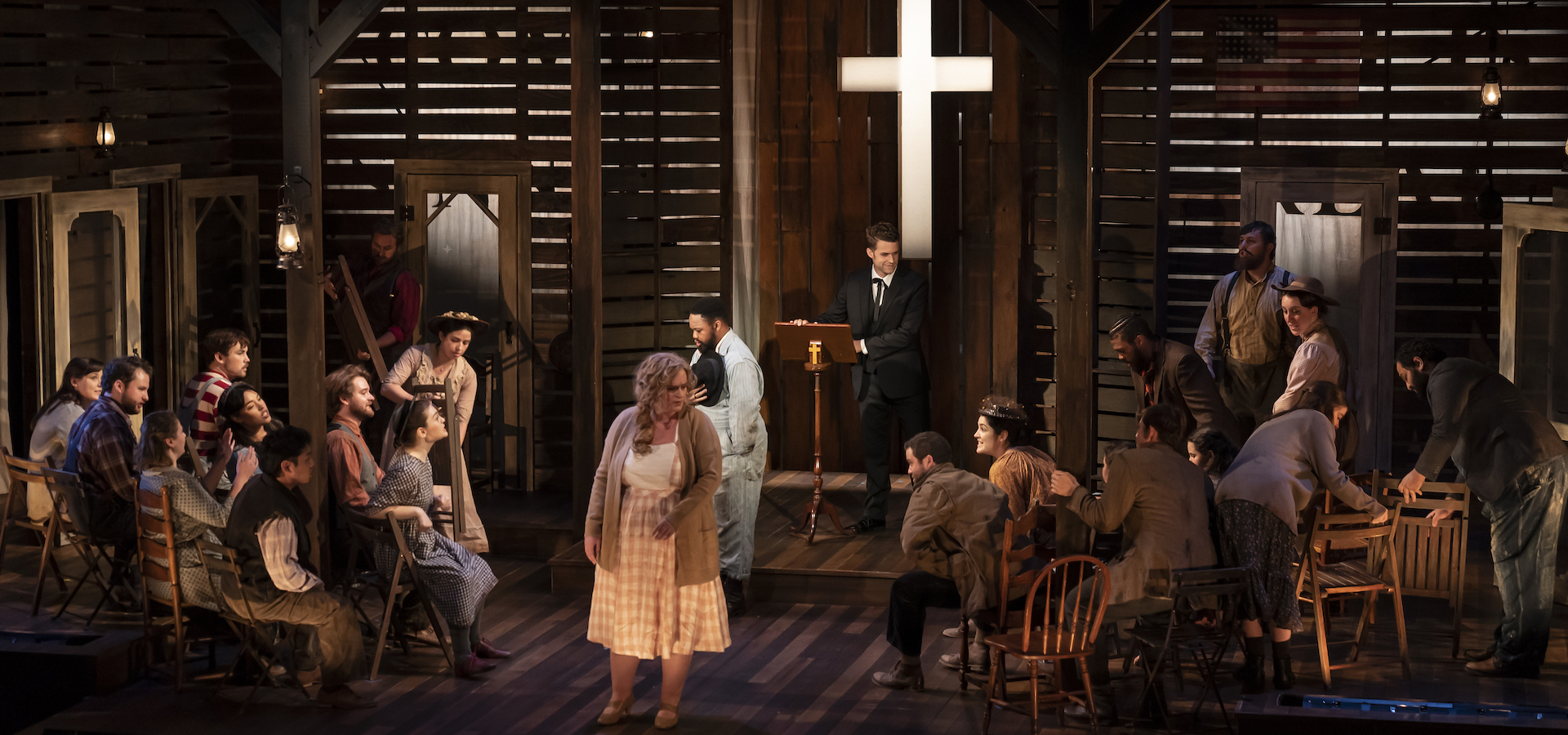Susannah Polk (downstage, center; Ann Toomey) is shunned by her Tennessean small town community in Wolf Trap Opera’s production of Susannah, which opened last night at Wolf Trap Opera in Vienna, VA. Photo by Scott Suchman.
Susannah opened last night at Wolf Trap Opera in Vienna, VA. This quintessentially American opera features a thrilling and evocative musical score, accusation and counter-accusation, and moral policing. After winning the New York Music Critics Circle Award for Best New Opera in 1956, this drama with a score and libretto by Carlisle Floyd (1926-2011) rocketed to international acclaim at the World’s Fair. For many excellent reasons, it has spent the past six decadesfirmly in the canon of American opera.
Wolf Trap’s production, directed by Dan Wallace Miller, takes the realist drama of the source material and transforms it into a melodrama. All of the action unfolds on or in front of a unit set was designed by Christopher Mumaw and lit by Marnie Cumings, morphing between cabin and church with a few pieces of furniture and a luminescent cross towering over the podium. In this stylized delivery, the community members frequently peer between the slats at the central characters – sometimes as voyeurs, sometimes a disapproving mob, sometimes morally outraged, and more. When this works, it works very well; at other times, this device becomes distracting, undermining the more character-focused arias.

The same is true of the lighting, which varies from poignant accents to B-movie garishness. The latter reduces some moments to cartoonishness, pulling punches by alienating the darker aspects of humanity. The show’s standout visual moment is the visceral, churning chaos of the public repentance scene in Act II – also one of the best vocal moments for bass-baritone Christian Pursell, whose Reverend Olin Blitch is revealed by this staging as a calculated, practiced (but deliciously voiced) manipulator of those around him. This is one of the strongest moments in the melodramatic conceit, foreshadowing the character’s darker turn in a later scene.

As the titular Susannah Polk, Ann Toomey brings an opulent voice and splendid sibling chemistry with Robert Stahley (as Sam Polk). Their scenes together are a highlight of the opera, from the spectacular Jaybird song in Act I to their heartbreaking tête-à-têtes in Act II. Stahley seems born to play his character, with his svelte tenor voice and a richly embodied, charismatic performance of the flawed Sam.
Within the space of The Barns at Wolf Trap, the orchestra led by conductor Stephanie Rhodes Russell was hidden behind a backdrop, but rich in expressive – and very imminent – sound. Amongst the orchestra, the French horn section of Geoff Pilkington and Chandra Cervantes played with special distinction in beautiful and challenging passages. Two of the standouts in comprimario roles were baritone Tshegofatso Clement Baloyi (as Elder Mclean) and soprano Sophia Hunt (as Mrs. Gleaton).

If you have seen Susannah before, this melodramatic take may not be your favorite. However, the music is brilliant, the soundscape rich, and Ann Toomey’s Act II performance of “The Hills on the Mountains” will take your breath away.

